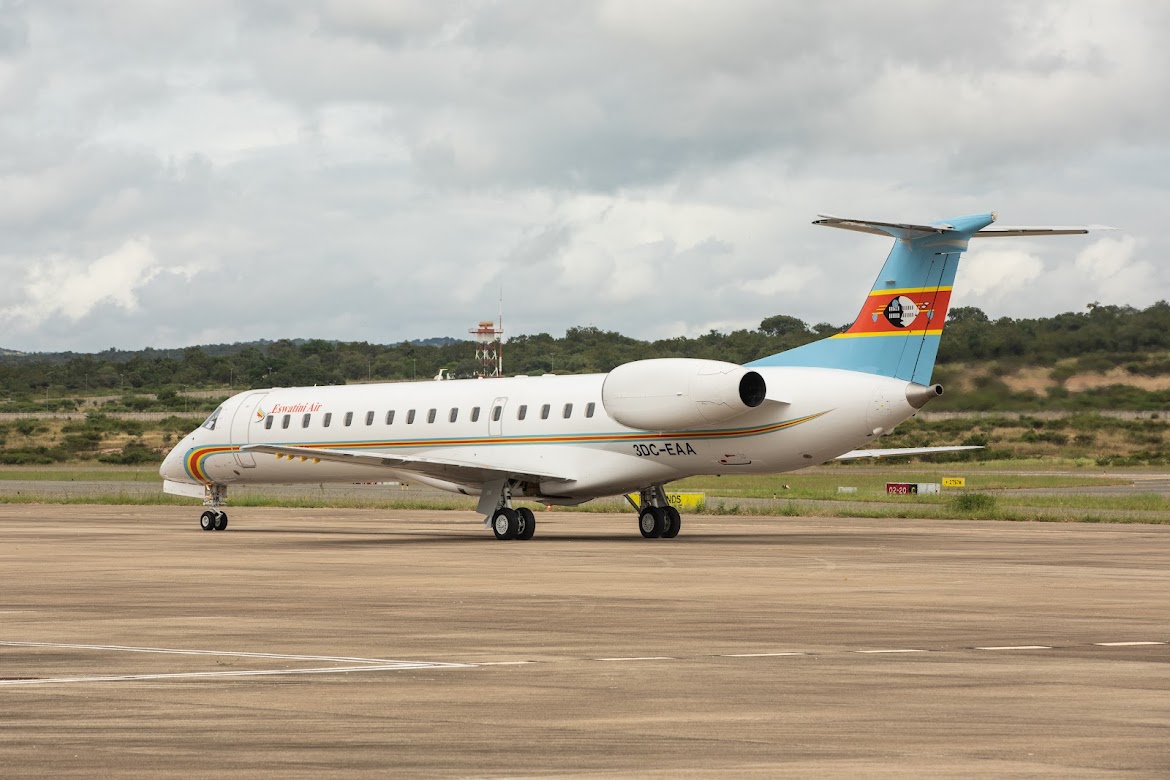By Phephile Motau
Delays in attaining all the necessary licensing documents might have created some doubts in the minds of disparagers on whether Eswatini Air will eventually take into the skies, but those challenges have not ruffled the national carrier’s feathers. While it is still waiting for the issuance of its Air Operator Certificate (AOC), Eswatini Air is working on its survival strategy by following aviation trends of forming partnerships that will help it extend its reach while allowing it to concentrate on routes that serve its passengers efficiently and profitably.

One of the burgeoning trends in the air-passenger transportation industry is the increasing number of airline code-share agreements.
And the Royal Eswatini National Airways Corporation (RENAC) seem to have noted that cooperative alliances are the future of the aviation industry, which is just starting to recover from the setbacks of the Covid-19 pandemic.
This was confirmed by the Royal Eswatini National Airways (RENAC) Distribution and PSS Analyst Nothando Ncongwane.
She said this was included in their strategy and it is for this reason that Eswatini Air had already entered into interline agreements with French’s APG Airlines and Hahn Air from Germany to boost their service accessibility and amplify their distribution capacity.
“More partnership agreements will be concluded as and when we commence operations,” she said.
Ncongwane said the industry trend today was towards deeper forms of partnerships in the form of codeshares and alliances. She said the interline agreements they had made were an important tool for expanding distribution and reach beyond online markets.
“These arrangements in effect constitute a new sales channel by supplying a new source of passenger demand and they will help the airline broaden network reach and deepen coverage by offering passengers more choices in terms of destinations and schedules,” Ncongwane said.
According to an article on BusinessLive, code-sharing and alliances are key to navigating a radically different aviation market post-Covid-19.
It was stated that there was no doubt that co-operative alliances were the future of the aviation industry, which was just starting to recover from the setbacks of the Covid-19 pandemic.
The article referenced research by management consultancy McKinsey which provided ample evidence for the necessity of code-share partnerships.
“To survive, airlines have no option but to look for partnerships that will help extend their reach, while allowing airlines to concentrate on routes that serve their passengers efficiently and profitably,” the article states.
Meanwhile, giving an update on when the two new aircraft which were purchased by the airline would begin operations, Ncongwane said initially, Eswatini Air’s scheduled operations were projected to commence mid-2022 upon successful completion of the Air Operator Certificate (AOC) approval process.
“Our project is ongoing and Stage 4 of 5 has been initiated,” she said.
She added that stage 4 was the demonstration phase which comprised a set of detailed activities that were auditable by the regulator per the laid down regulations.
“Stage 5, which is the final stage, is an internal admin process performed by the regulator. Issuance of the AOC will be followed by applying for Foreign Operator Permits from Aeronautical authorities of countries Eswatini Air will be flying to,” she said.
Ncongwane said they were happy to mention that the regulator was working with other civil aviation authorities in the region to ensure that due process was followed and that the certification process met international standards.
“The two aircraft to be used for the operation are both already in Eswatini and are currently being used for regulatory compliance checks as part of the ongoing certification process. The four routes to be operated using the two Embraer ERJ 145 aircraft are Johannesburg, Durban, Cape Town, and Harare. The date for commencement of operations will be announced after AOC issuance,” Ncongwane said.
In July, Eswatini Financial Times reported that the Minister of Public Works and Transport Chief Ndlaluhlaza acknowledged that the process was underestimated and that unrealistic targets were set.
“It must be noted that this will be the first the Air Operators’ certificate (AOC) to be applied for in the country. Getting it right after a long time would be better than getting the AOC fast and unsustainable,” the minister said.
Ncongwane said Eswatini Air had the potential to unlock economic and social benefits that air transport contributed to applicable economies. She said this was in line with the country’s national development and Post Covid-19 Economic recovery plans.
“Eswatini as a country fully supports and is a signatory participant to the Single African Air Transport Market (SAATM) and the Yamoussoukro Decision,” she said.






